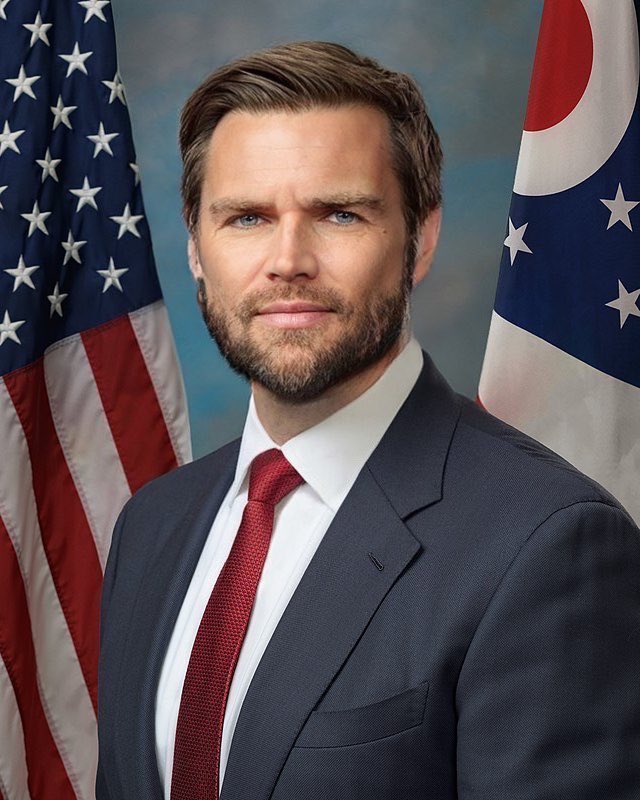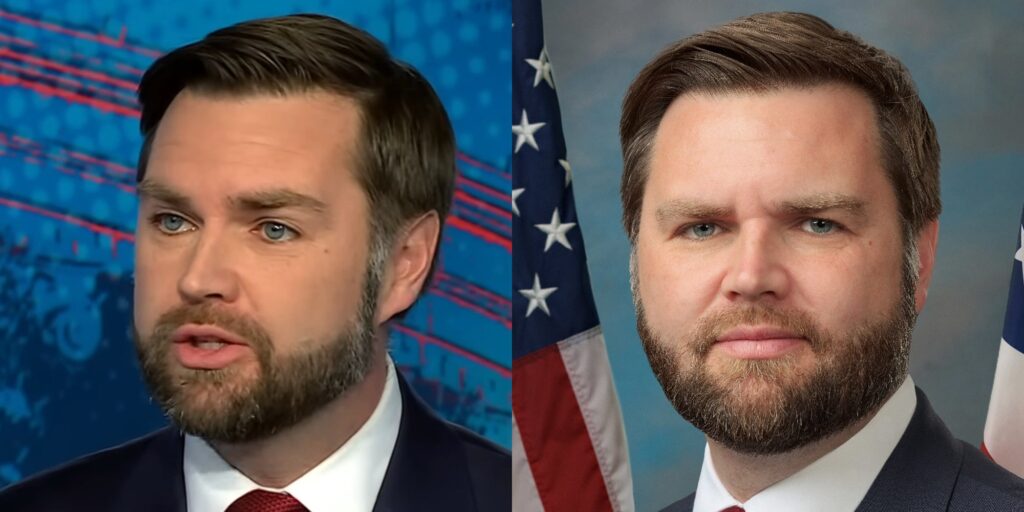When it comes to politics, most discussions revolve around policies, JD Vance Eyeliner debates, and campaign strategies. But every once in a while, something unusual sneaks into the spotlight—something that has nothing to do with policy or party lines. Enter JD Vance eyeliner. Yes, you read that right. What started as a simple observation about his appearance turned into a viral meme and a larger cultural conversation online. In this article, we’ll unpack why this became a trend, how memes fuel political culture, and what the eyeliner debate says about modern media.
The Origin of the JD Vance Eyeliner Meme

The buzz around JD Vance Eyeliner Eyeliner supposed eyeliner look didn’t begin with a serious news report. Instead, it emerged from the fast-moving world of social media. Viewers of televised interviews and campaign appearances started pointing out that his eyes looked more defined than usual, sparking speculation about whether he was wearing eyeliner.
On platforms like Twitter (now X) and TikTok, the discussion snowballed quickly. Some users joked that his eyeliner was “too perfect to be natural,” while others argued it was simply a trick of the camera, lighting, or even his natural lash line. But as with most internet debates, the truth mattered less than the meme itself. What caught people’s attention was the humor of imagining a high-profile politician taking time out of his day to apply eyeliner before a rally or TV hit.
This wasn’t the first time a politician’s looks became the center of viral attention. Over the years, everything from haircuts to wardrobe choices has been meme-fodder. But with JD Vance, the eyeliner angle gave the public something quirky and lighthearted to latch onto during an otherwise intense political climate.
Why Eyeliner Became the Focal Point
At first glance, eyeliner might seem like a trivial topic for discussion about a U.S. senator. However, its appeal lies in its unexpectedness. Politics is usually serious, even exhausting, so when something visually striking—or unusual—shows up, people can’t resist talking about it.
The eyeliner speculation touched on two key internet obsessions: appearance and authenticity. People wondered: Is JD Vance actually using eyeliner to enhance his look, or is this just the way his eyes appear on camera? For some, the mystery itself was part of the fun. Others saw it as a symbolic commentary about “polished” political personas in general.
Memes also thrive on exaggeration. The idea of JD Vance meticulously applying eyeliner before going on stage is comical precisely because it clashes with the traditional image of a stoic, no-nonsense politician. That clash fuels the humor and makes the meme spread even faster.
The Role of Social Media in Spreading the Joke
Without platforms like X, TikTok, and Reddit, the eyeliner debate would never have taken off. Social media thrives on snippets, screenshots, and short video clips—the perfect formats for something like this. Once one or two posts gained traction, countless others piled on with jokes, edits, and comparisons.
For example, some users compared JD Vance’s look to characters from pop culture known for eyeliner-heavy styles, ranging from rock stars to movie villains. Others made side-by-side edits of him with gothic eyeliner, further amplifying the joke. Before long, “JD Vance eyeliner” became a searchable trend.
The social media ecosystem rewards humor and shareability. A serious discussion about Vance’s political positions may not go viral, but a funny meme about eyeliner absolutely will. In a way, the trend highlights how political figures today are not just leaders but also unwilling participants in internet culture.
Memes, Image, and Political Branding
The eyeliner meme may be silly, but it ties into a bigger theme: image and branding in politics. Politicians have always been judged by how they look, whether it’s JFK’s youthful charisma in the 1960s or Barack Obama’s calm, confident demeanor in the 2000s. Today, that scrutiny happens in real-time and is magnified by memes.
For JD Vance, the eyeliner discussion didn’t damage his career or credibility. Instead, it added a layer of internet notoriety, making him more recognizable to people who might not otherwise follow politics closely. For younger generations especially, memes serve as their first introduction to many public figures.
Interestingly, memes like this can even help soften a politician’s image. While Vance may be known for his serious takes on social and economic issues, the eyeliner joke humanized him by casting him in a humorous light. Whether he appreciated it or not, the meme gave him cultural visibility beyond the political sphere.
What Eyeliner Jokes Say About Modern Politics
So, what does this all mean in the bigger picture? The JD Vance eyeliner moment demonstrates how the internet reshapes political conversations. Instead of just focusing on policy, people also fixate on quirks, appearances, and viral moments. That shift can be frustrating for politicians, but it’s also inevitable in the age of memes.
In some ways, this is democracy at work in the digital age. Ordinary people get to shape the narrative by making jokes, sharing memes, and reframing political figures in ways that resonate with the public. At the same time, it blurs the line between serious political analysis and lighthearted entertainment.
Ultimately, eyeliner jokes reflect a reality: people want a break from constant political intensity. They crave humor, relatability, and cultural touchstones that make politics feel less distant. JD Vance happened to be the latest example of that trend.
The Lasting Impact of the JD Vance Eyeliner Meme
Will the eyeliner joke stick around forever? Probably not. Most internet memes have a short shelf life. However, the fact that people still reference it shows that it left a mark on pop culture. Even if it fades, it’s part of the growing archive of quirky internet moments attached to modern politicians.
For JD Vance, this was likely just a blip in the long run. But for meme culture, it was another victory—proof that even the most unlikely detail can spark a viral trend. And who knows? The next time Vance appears on television, viewers might once again be checking his eyes, wondering if the eyeliner is back.
In the end, the “JD Vance eyeliner” phenomenon is less about makeup and more about the power of internet humor to shape political conversations. It shows us that in today’s world, politics isn’t just fought in debates or at the ballot box—it’s also fought, and sometimes won, in memes.
Conclusion: Eyeliner, Memes, and the Politics of Appearance
The JD Vance eyeliner saga is a reminder that modern politics isn’t just about policies—it’s also about perception. Whether or not eyeliner was ever really involved doesn’t matter. What matters is how quickly a lighthearted observation turned into a viral talking point, highlighting the role memes play in shaping public conversations.
For voters, it’s a chance to laugh in the middle of political chaos. For politicians, it’s a lesson in how unpredictable internet culture can be. And for everyone else, it’s simply one of those strange, funny stories that will be remembered long after the news cycle has moved on.
So, while JD Vance may be remembered for many things in his career, his unintentional eyeliner meme will forever hold a place in the quirky history of political internet culture.

